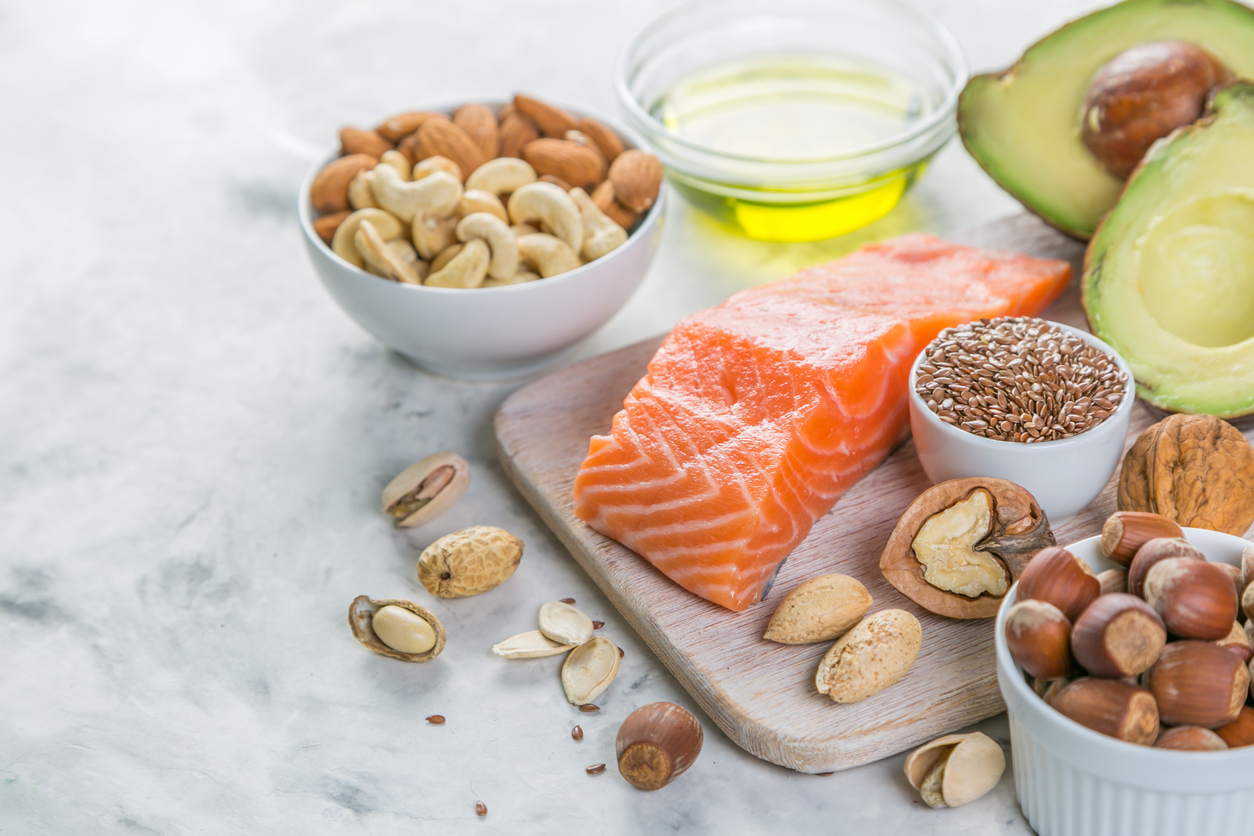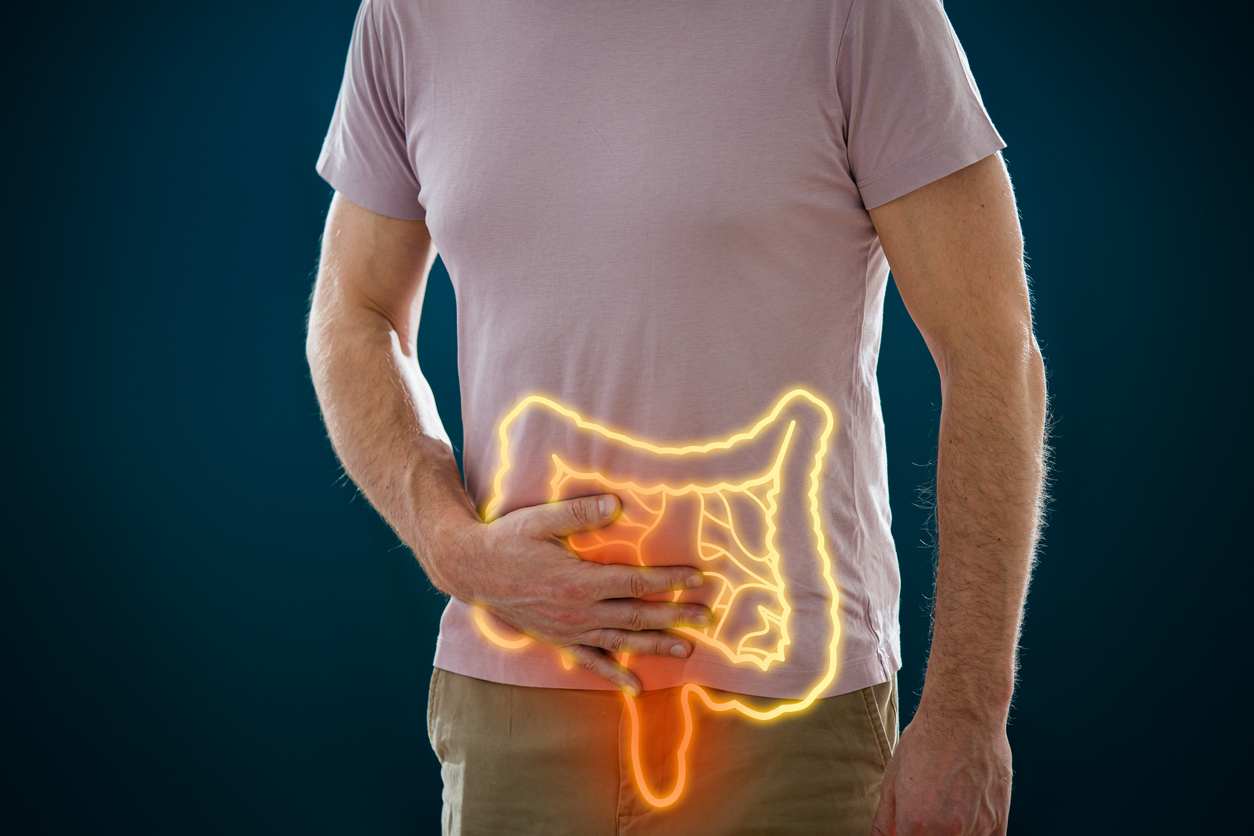2025-05-27
Hormones: should we really fear fat?
Endocrinology and Metabolism
#Hormones #Nutrition #Endocrinology #SHBG
Sex hormones, such as testosterone, estradiol, and SHBG (Sex Hormone-Binding Globulin), are steroid compounds derived from cholesterol, primarily produced by the gonads. While they are historically associated with reproduction, sexual development, and secondary sexual characteristics, their function goes far beyond these roles. These hormones are involved in immune regulation, muscle mass maintenance, body temperature control, glucose-lipid metabolism, and the prevention of cardiovascular diseases.
Recent data suggest that dietary fat intake may influence circulating levels of these hormones. Many studies have explored the relationship between dietary fat composition and hormone concentrations. Some of them reported that a low-fat diet could decrease testosterone, estradiol, or SHBG levels—especially in men and premenopausal women. Other studies, however, found no significant changes, fueling an ongoing debate in the scientific literature.
In this context, the present study was designed to evaluate the effects of a low-fat diet compared to a high-fat diet on circulating sex hormone concentrations in adults.
Eleven randomized clinical trials, including a total of 888 participants aged 33 to 65, were selected. The subjects—both men and women—had varied profiles, ranging from healthy individuals to patients with polycystic ovary syndrome (PCOS) or breast cancer.
The duration of the interventions ranged from 4 weeks to over a year. The studied sex hormones included testosterone, estradiol, estrone, SHBG, DHEAS, progesterone, and androstenedione.
The results showed no significant changes in hormone concentrations between low-fat diets (≤30% of total energy intake) and high-fat diets. For instance, estradiol levels did not differ significantly between the two groups. Similarly, testosterone levels remained stable, with no significant variation, and the same was true for SHBG.
Sensitivity and subgroup analyses—taking into account factors such as sex, menopausal status, intervention duration, and possible co-interventions—confirmed the consistency and robustness of the results. However, moderate heterogeneity was observed for some hormones, suggesting that contextual or individual factors might modulate dietary effects in specific subgroups.
Sex hormones play a central role in the development of many chronic conditions, including metabolic and cardiovascular diseases, as well as certain cancers. Among the factors likely to influence their regulation, diet—and particularly fat consumption—has been considered a potential contributor. Yet, current knowledge about the link between diet and hormonal balance remains mixed and controversial.
Against this backdrop, the goal of this study was to compare the effects of low-fat versus high-fat diets on sex hormone levels in adults. The findings indicate that reducing fat intake does not lead to significant hormonal changes, challenging the commonly held notion that a low-fat diet alone can have a preventive or therapeutic effect on hormonal balance.
Although these results provide valuable insights, further research is needed. The variability of the diets tested, the differing intervention durations, and the lack of precise dietary adherence tracking may affect conclusions. To better understand the link between diet and hormonal balance, longer and more rigorous studies are necessary. These should include precise tracking of dietary intake, detailed analysis of fat quality, and consideration of participants' metabolic and physiological profiles. Future studies may help identify individualized nutritional profiles that could influence hormonal regulation in a targeted and scientifically grounded way.
Sex hormones, such as testosterone, estradiol, and SHBG (Sex Hormone-Binding Globulin), are steroid compounds derived from cholesterol, primarily produced by the gonads. While they are historically associated with reproduction, sexual development, and secondary sexual characteristics, their function goes far beyond these roles. These hormones are involved in immune regulation, muscle mass maintenance, body temperature control, glucose-lipid metabolism, and the prevention of cardiovascular diseases.
Recent data suggest that dietary fat intake may influence circulating levels of these hormones. Many studies have explored the relationship between dietary fat composition and hormone concentrations. Some of them reported that a low-fat diet could decrease testosterone, estradiol, or SHBG levels—especially in men and premenopausal women. Other studies, however, found no significant changes, fueling an ongoing debate in the scientific literature.
In this context, the present study was designed to evaluate the effects of a low-fat diet compared to a high-fat diet on circulating sex hormone concentrations in adults.
Less fat, fewer hormones?
Eleven randomized clinical trials, including a total of 888 participants aged 33 to 65, were selected. The subjects—both men and women—had varied profiles, ranging from healthy individuals to patients with polycystic ovary syndrome (PCOS) or breast cancer.
The duration of the interventions ranged from 4 weeks to over a year. The studied sex hormones included testosterone, estradiol, estrone, SHBG, DHEAS, progesterone, and androstenedione.
The results showed no significant changes in hormone concentrations between low-fat diets (≤30% of total energy intake) and high-fat diets. For instance, estradiol levels did not differ significantly between the two groups. Similarly, testosterone levels remained stable, with no significant variation, and the same was true for SHBG.
Sensitivity and subgroup analyses—taking into account factors such as sex, menopausal status, intervention duration, and possible co-interventions—confirmed the consistency and robustness of the results. However, moderate heterogeneity was observed for some hormones, suggesting that contextual or individual factors might modulate dietary effects in specific subgroups.
Read next: Fats and Hormones: A Link to Clarify?
Fats under the spotlight, but no effect?
Sex hormones play a central role in the development of many chronic conditions, including metabolic and cardiovascular diseases, as well as certain cancers. Among the factors likely to influence their regulation, diet—and particularly fat consumption—has been considered a potential contributor. Yet, current knowledge about the link between diet and hormonal balance remains mixed and controversial.
Against this backdrop, the goal of this study was to compare the effects of low-fat versus high-fat diets on sex hormone levels in adults. The findings indicate that reducing fat intake does not lead to significant hormonal changes, challenging the commonly held notion that a low-fat diet alone can have a preventive or therapeutic effect on hormonal balance.
Although these results provide valuable insights, further research is needed. The variability of the diets tested, the differing intervention durations, and the lack of precise dietary adherence tracking may affect conclusions. To better understand the link between diet and hormonal balance, longer and more rigorous studies are necessary. These should include precise tracking of dietary intake, detailed analysis of fat quality, and consideration of participants' metabolic and physiological profiles. Future studies may help identify individualized nutritional profiles that could influence hormonal regulation in a targeted and scientifically grounded way.
Read next: PCOS: Is homocysteine the hidden fertility marker?

Last press reviews
Colorectal cancer: a blood test to identify patients at risk of recurrence

By Ana Espino | Published on March 2nd, 2026 | 3 min read<br><br>
Cancer: when biotin becomes a therapeutic lever

By Elodie Vaz | Published on February 27, 2026 | 3 min read<br>
